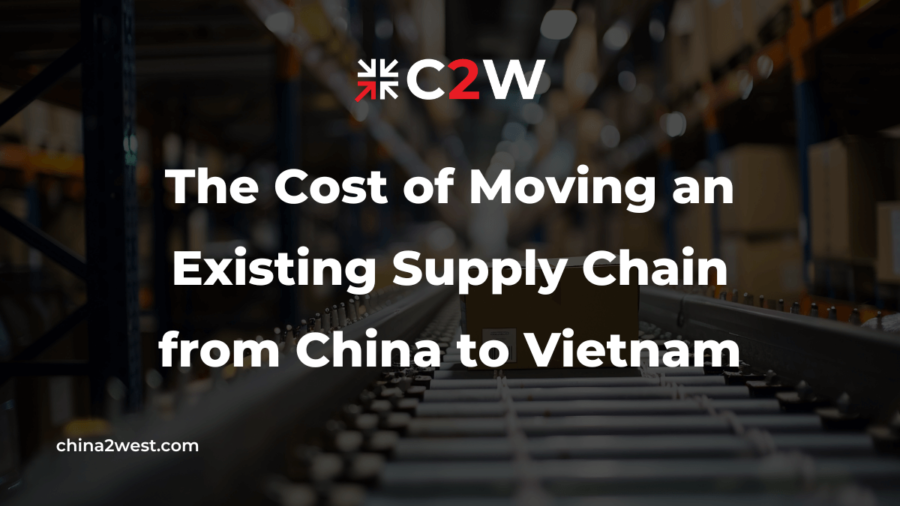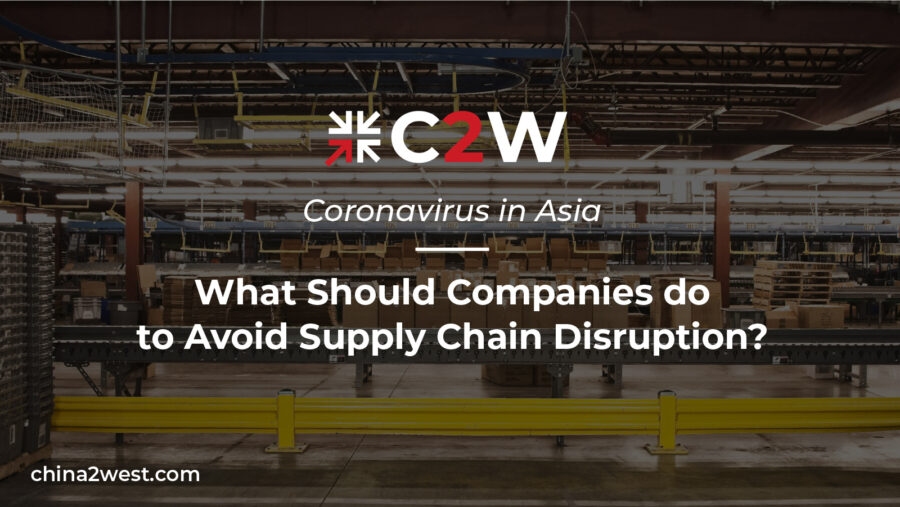It’s important for a Western brand to know who exactly is making their products. Though a lot of brands are making great strides in ensuring safe and ethical working conditions among direct vendors and suppliers, indirect suppliers of components and raw materials tend to be under less scrutiny.
One challenge Western brands face when outsourcing supply chains to China is unauthorized subcontracting.
One may think that once they’ve vetted their primary suppliers, the job of inspecting working conditions and monitoring the supply chain is done. But that’s not necessarily true.
This article will help you understand why unauthorized subcontracting occurs, and how to manage the risks that it presents to your supply chain operations in China and other global markets where unauthorized subcontracting can occur.
What is Unauthorized Subcontracting?
When a supplier outsources the whole or part of the production of an original company to another supplier without the owner’s knowledge or approval, it is unauthorized subcontracting.
Subcontracting is common in the apparel industry and sourcing activities, and it can happen for a variety of reasons, but often it is done in an effort to speed up production or save money.
Unfortunately, when the owner is unaware of the third party, the subcontractor, the production process will be hard to track thoroughly.
And this practice can lead to dangerous and unethical working conditions, as the subcontracted company may not hold to the same standards as the original contractor.
Why Unauthorized Subcontracting Happen?
Though unauthorized subcontracting is unethical, it does happen from time to time. Keep reading to find out why.
1. Price Pressure
First off, price pressure is positively correlated with the probability of unauthorized subcontracting.
Subcontracting is a way for a manufacturer to cut corners and save money. One way they’re doing this is by outsourcing the original production to another supplier with lower costs.
2. Production Capacity
More orders mean more business and potentially higher earnings. A manufacturer will gladly take on more jobs because rejecting an order means that the buyer won’t return with future purchases and the factory doesn’t want to miss the chance.
However, if a company’s already operating near its capacity limit when new orders keep rolling in, it’s possible they’ll turn them over to someone else for production who doesn’t have the owner’s approval.
3. Bad Reputation
Building up a strong reputation is essential for any company. Those with good reputations are able to attract better clients because you trust that they will offer greater value and help grow your business.
If you hired an untrustworthy and unscrupulous supplier who has an unauthorized subcontracting history, the chances of them doing so again are much higher.
4. Country Regulations
Countries that have less mature markets and lack the established manufacturing structures and systems to deal with an influx of international buyers are much more likely to start relying on practices such as unauthorized subcontracting to deal with the increased demand and subsequent capacity issues.
What Are the Risks of Unauthorized Subcontracting?
Although most Western companies are actively involved in improving suppliers’ production quality through auditing, the complex nature of supply chains in the manufacturing industry makes it very difficult for foreign brands to track where their products are actually manufactured. There are several risks associated with unauthorized subcontracting in China.
1. Non-compliant Working Conditions
Unauthorized subcontracting usually takes place in non-compliant working conditions.
Because of this, workers are not well protected by the same labor laws and safety standards as they would be in a legitimate, authorized factory. This can lead to long hours, little to no pay, and dangerous working conditions.
2. Low-Quality Output
The use of an unknown factory means that Western brands don’t have full control over the production process, resulting in the quality of the product is not up to the standards of the original brand. It can be a serious problem as it could lead to costly returns or replacements due to defectiveness.
3. Reputational Damage
A company’s reputation is important because it is one of the main things that customers care about when making purchase decisions.
Brands with quality issues and a history of unauthorized subcontracting to dangerous or unethical suppliers could face severe reputational damage, making it difficult for them to find new customers in the future.
Mitigating Unauthorized Subcontracting in Supply Chains
As you know now, unauthorized subcontracting can introduce a number of risks to your business and supply chain.
To mitigate these risks and stay free from these scandals, Western brands should put in place policies and procedures to prevent unauthorized subcontracting from happening in their supply chains, including
- Doing due diligence on suppliers
- Building up sustainable business relationships
- Being willing to pay for higher quality
- Managing workloads
- Monitoring performance
- Communicating about the production process
- Setting clear standards and requirements
- Conducting a quality inspection
Also, choosing the one who is reliable and professional to complete your project is an important task. Keep in mind that work with companies that specialize in your industry and have experience in your field. Avoid those that offer products and services way outside their realm of expertise, as you’ll find they are likely more concerned with placing orders than quality, customer service, and business relationships.
China 2 West is a British-owned and managed company established in 2005 in Zhuhai City, Guangdong Province, South China Greater Bay Area. With over 15,000 projects completed, there is no wonder why we’ve been able to achieve success. Contact us today.




